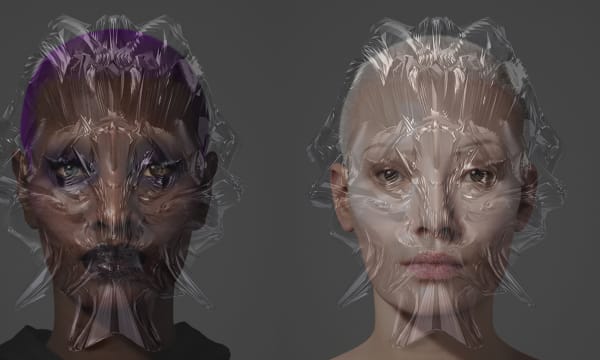Digitized versions of artists, models, and celebrities are emerging as AI’s new age virtual ambassadors - at a price. Some forward-thinking artists are setting a new standard to maximize on their talents, music, and likeness and maintain legal rights and control of their digital duos at the same time.
Supermodel Eva Herzigová now has an authorized digital twin. Created with Unsigned Group and virtual production company Dimension Studios, her “metahuman” developed from her likeness can participate in new projects, activations, and promotions even as she continues to age. Generated from Unreal Engine’s metahuman creator platform, her still images, virtual renditions, and even her catwalk can be reused (for a price) for anything from fashion activations to games and immersive experiences. Herzigová told Vogue that the physical process of recreating herself as a digital avatar felt like “giving birth to herself”.
Musical artist Grimes announced in April that she would allow anyone – fans, other artists, production companies – to create songs with her voice for a 50-50 split in royalties. Music and art fanatics have recently uncovered the ability to recreate and reuse voices, music and content using AI, along with the ability to change and manipulate it in different ways. One week after the music star gave public permission to use her voice, she launched Elf.Tech: an open-source software program that can be used to replicate her voice.
Last fall, actor Bruce Willis’s likeness was used by the deepfake company Deepcake without his expressed permission. When the company used Bruce Willis’s digital twin in an advertisement, it was met with complaints from representatives for Willis: “there is no partnership or agreement that exists between Bruce and Deepcake,” they told Variety. When Deepcake’s evident ability to create digital twins without consent caused some backlash, the company stated that while they can and do create digital twins of celebrities, they do not own the rights to them.

